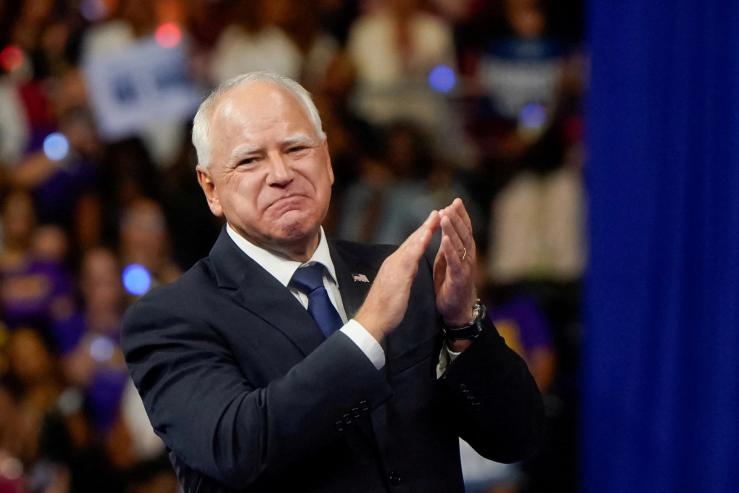The News
Democratic vice presidential nominee Tim Walz has turned into an overnight media sensation in China.
The Minnesota governor’s experience teaching English in China in 1989, spending his honeymoon there, and organizing student trips to the country has led many Chinese social media users to hope that he could help thaw fraught US-China relations if elected.
But even as Republicans in the US have sought to paint Walz, 60, as “pro-China,” he has a history of being an outspoken critic of the country’s human rights record.
SIGNALS
A possible foil to anti-China Vance
Some Chinese state media outlets and online commentators expressed enthusiasm about Walz. As a future vice president, Walz could quell US-China tensions by continuing “to promote cultural and people-to-people exchanges” between the two superpowers, Phoenix TV wrote. One WeChat security blog compared Walz’s stance to his Republican rival, JD Vance, saying the latter has been “gunning down China and blaming it for everything” since his nomination. However, other observers believed Walz would adopt a tough stance toward Beijing despite his personal connections to the country. “I don’t think their China policy depends on their past experiences, I think it still depends on the American perception of their own economic status,” one US-China expert said.
Chinese social media users voice skepticism
Chinese social media commentators pointed out that Walz taught in China during the year of the Tiananmen Square massacre, with some casting suspicion on his motives for being there at that time. Foreigners in China “are the most anti-China” during that period, one user said, according to the BBC. The sentiment reflected the rising nationalism and anti-foreigner mood in China: The country’s top spy agency this year released a video encouraging ordinary citizens to spot “cunning… and sneaky” foreign spies they might encounter in their everyday lives.
Hong Kong activists ‘filled with enthusiasm and optimism’
Several Hong Kong activists touted Walz as the vice presidential pick given his support for the territory’s democratic movement. Jeffrey Ngo, a member of the now-disbanded Hong Kong pro-democracy party, Demosisto, noted that Walz was the sole House Democrat to continue sponsoring a human rights bill for Hong Kong in 2017, and that he had “evolved” his position on Hong Kong over the years. Walz’s posts on X showing his meeting with imprisoned Hong Kong activist Joshua Wong in 2017 and tracking the number of Tibetan political prisoners detained by China also circulated among activists. Ngo wrote on the platform that he was “filled with enthusiasm and optimism” about Walz’s potential role in helping “fight for Hong Kong’s cause.”


